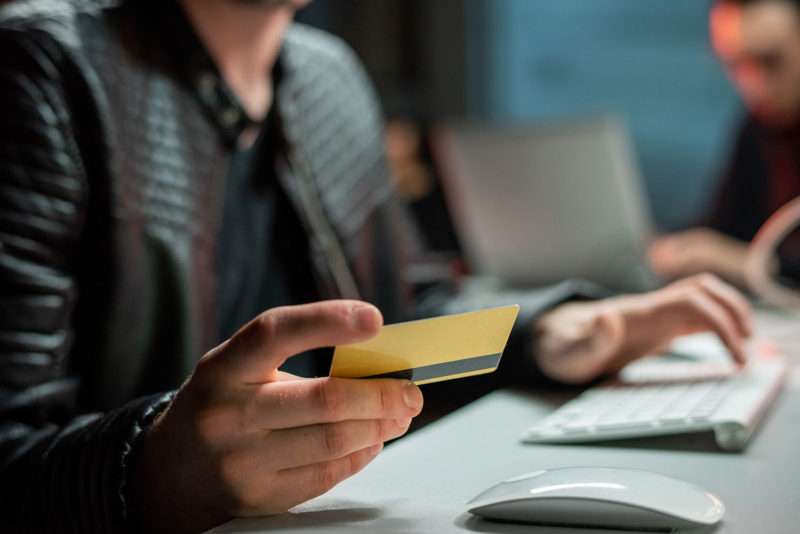

How to avoid impulsive shopping?
Val més que ens preparem per no caure en l’anomenada oniomania.
Quantes vegades has marxat d’una botiga amb un carro ple de coses que no necessites? Segons l’Associació Centre Català per les Addiccions Socials (ACENCAS), les compres per impuls han augmentat un 20% durant la pandèmia. Les compres per impuls són aquelles que es realitzen de forma espontània i són l’antitesi de les compres rutinàries. El disseny dels supermercats i els grans magatzems, les estratègies de màrqueting i la publicitat han excel·lit en l’art de parar-nos trampes perquè comprem, però els experts alerten que aquestes compres impulsives poden ocasionar problemes greus a l’economia domèstica.
Quan aquest impuls es converteix en obsessió, aleshores parlem d’oniomania o compra compulsiva, un terme que va ser emprat per primera vegada pel psiquiatre alemany Emil Kraepelin, i que descriu el desig irrefrenable de comprar. La compra compulsiva genera, tal com assenyalen els psiquiatres, una satisfacció immediata que ens omple de sentit i amb la qual aconseguim esborrar els problemes temporalment. Per això, les persones que compren de forma compulsiva fins al punt de considerar que tenen un trastorn, sovint amaguen els objectes que han comprat avergonyits i es mostren irascibles o deprimits. Aquest sentiment de culpa el compensen amb una nova compra. És un peix que es mossega la cua.
- No aneu mai a comprar amb la panxa buida. Ja ho hem apuntat unes línies més amunt: els supermercats i els grans magatzems estan organitzats amb una cura mil·limètrica per despertar tots els instints més baixos. Classifiquen els productes, estableixen relacions entre les marques, deixen l’espai necessari perquè observis les prestatgeries, il·luminen l’espai perquè centris la mirada en una direcció concreta, col·loquen els productes poc buscats prop de les caixes o deixen ben exposades les ofertes, entre molts altres trucs. Per això, un bon consell quan anem a comprar és fer-ho amb la panxa buida. Quan un té gana, és més fàcil que caigui en la temptació de comprar un desig.
- Porta la llista de la compra de casa. Una altra manera d’evitar les temptacions d’última hora és fer una llista a casa d’allò que necessites. Amb la llista a la mà, pots estar segur que no compres de més i, si ho fas, en seràs ben conscient.
- Evita les ofertes 2×1. Cal evitar tant com sigui possible totes aquelles ofertes que només ens fan anar a casa amb productes de més. Per què necessites tres raspalls de dents si vius sol? Si necessites una camisa, per què n’has de comprar dues? És important no deixar-se endur per la sensació que comprant ofertes estem estalviant, perquè no és veritat.
- Si les compres impulsives es tornen compulsives, consulta el metge. Si les compres et produeixen malestar, baixa autoestima, buit emocional o por, però no les pots evitar, potser és hora que parlis amb un metge. La psicoteràpia és necessària per superar aquest trastorn, sense la qual la compra compulsiva pot persistir tota una vida i, fins i tot, provocar la ruïna financera de la persona afectada i el seu entorn més pròxim.
11Onze és la fintech comunitària de Catalunya. Obre un compte descarregant la super app El Canut per Android o iOS. Uneix-te a la revolució!





👌Clavat, se’n parla poc.
Merci, tindrem q anar reduint aquesta mena de gastos economics👍
Sempre acabes comprant coses de més, el millor és anar amb els diners justos, tot i que ara amb les targetes és difícil.
Molta raó, i també millor anar a comprar sense nens. Gràcies pel teu comentari, Rosa!!!
És fàcil caure en la compra compulsiva i més quan la pressió mediàtica és tan forta. Cal fer-se aquesta reflexió: Si ho comprem tot a les rebaixes. Són rebaixes?
Bona observació! Però molt difícil de què es compleixi. Moltes gràcies pel teu comentari, Francesc!!!
Ok 👍
Gràcies, Josep!!!
Tot i la llista de la compra més d’un cop acabes comprant el que no et cal
Si, cert, malauradament sòl passar. Moltes gràcies, Alícia!!!
👌
Gràcies, Joan!!!